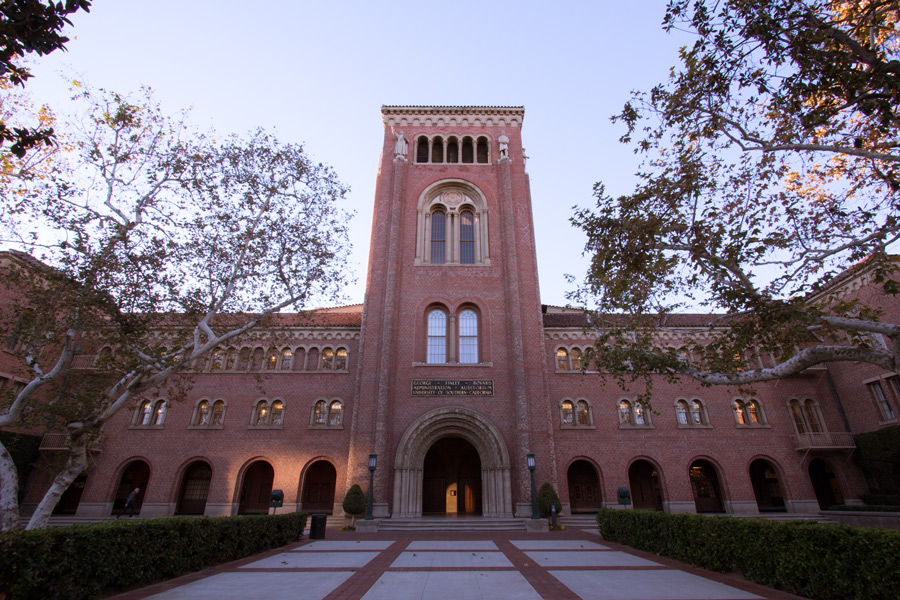

Nick Entin | Daily Trojan
This week, the Daily Trojan launched "Speck of Green," a news series exploring the topic of environmentalism at USC. Given the spectre of climate change and the undeniability of its effects and existence, we saw an opportunity to engage with the campus community about our role in combating the greatest modern threat facing our planet.
California is no stranger to climate change strategy and activism, having implemented statewide measures to reduce greenhouse gas emissions to 40 percent below 1990 levels by 2030. Working both domestically and internationally, the state leads the nation in ambitious programs to combat climate change.
USC — an institution that touts itself as a global leader in thought and innovation — has a moral obligation to do its part in California's charge toward environmental sustainability.
In 2015, the University launched the Sustainability 2020 Plan, a campus-wide effort organized around seven core goals and initiatives. As the titular deadline year fast approaches and the plan's already-modest goals remain hardly within reach, it's time for USC to reassess its position of privilege and set a prime example for Los Angeles and the rest of the world.
One of the areas in which the University has excelled is in how it manages its largest facility — the Los Angeles Memorial Coliseum.
In 2015, USC implemented a zero-waste program for the football stadium for both Trojans and Los Angeles Rams games. In 2017, it won the Pac-12 zero-waste competition after diverting more than 90 percent of gameday waste during its annual "Green Game" and became the largest NFL stadium and second-largest college stadium to achieve zero waste. This season, the Coliseum has achieved zero waste in two out of three USC games in which data was made available.
As highlighted in the series, USC is also home to a student-organized housing operation focused on environmental consciousness, as well as a self-sustaining garden that grows and delivers produce to various campus establishments.
Despite all the praiseworthy endeavors the University has undertaken thus far, there is still a lot of room for improvement.
While the Sustainability 2020 Plan is a commendable first step, it is simply not enough. Most importantly, it does not demonstrate a robust commitment from the senior leadership level to addressing the pressing challenges of environmental degradation in a manner that reflects USC's capability given its immense power and resources.
The University must do better engaging students, who are vital components of the environmental movement on campus.Whether through letters to the editor, on-campus activism or peaceful demonstrations, USC student organizations have consistently indicated their allegiance to combating climate change. Similarly, in a letter published in Wednesday's edition of the Daily Trojan, members of the Academic Senate Committee on Sustainability voiced their support for the student groups who took the lead in calling on the University to bring its promises to fruition.